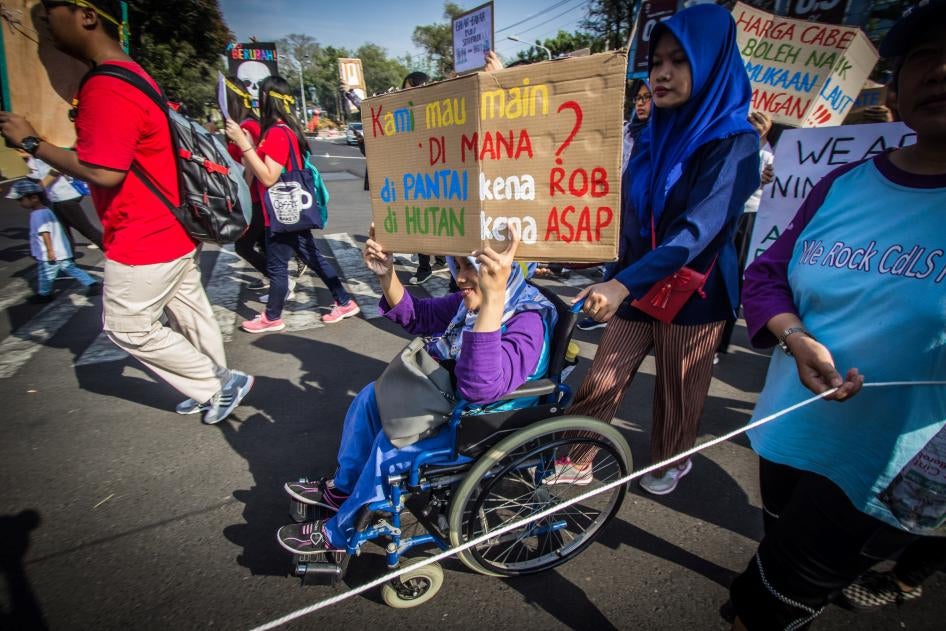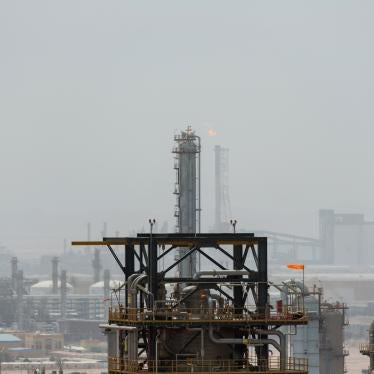“If we don’t bring persons with disabilities to the table and think of an inclusive climate change response, we’re again looking at not just a future but a today where we’re leaving them out and behind.”
As world leaders gather for the 28th global climate conference (COP28) in Dubai, they should heed these words from Nidhi, an advocate from India fighting for climate justice inclusive of people with disabilities. They should no longer be an afterthought in climate negotiations and agreements.
So far, 2023 has been another catastrophic year witnessing the impacts of climate change. July was the hottest month ever recorded worldwide, wildfires raged in Canada, and scorching heatwaves hit Spain, India, and Bangladesh – to name a few. The rights of people with disabilities, including the right to life and the right to health, are disproportionately at risk during climate-related disasters, yet policies and practices fail to sufficiently protect them.
There is no time to waste in strengthening commitments toward climate action. Earlier this year, the Intergovernmental Panel on Climate Change warned that the world needs to reduce emissions well before 2030 to avoid an overshoot of the 1.5 degrees Celsius limitation target. Governments have human rights obligations to address climate change, including addressing its chief drivers – fossil fuels and deforestation – and improving protection of and supporting at-risk populations in adapting to inevitable climate impacts.
At COP28, it’s important to ensure people with disabilities are included in climate negotiations and agreements to cut emissions by phasing out fossil fuels and protecting those most at risk of adverse climate effects. The United Arab Emirates, which is hosting COP28, should live up to its promise of striving “to make COP28 the most accessible and inclusive COP to date by proactively and authentically engaging with numerous constituencies and diverse groups, including … people with disabilities.”
COP negotiators and climate activists also need to take the demands for disability-inclusive climate justice seriously. Vashkar, an activist from Bangladesh, told us: “We believe that people with disabilities can lead and perform like others to create a disability inclusive climate change movement.”
As the world braces for worsening climate catastrophes, leaders should listen and be guided by people with disabilities and all those who have least contributed yet are most impacted by the single greatest threat to humanity.








